#trick to divide ccp and chinese people
Link
Ok, I'll do my best to try, because reading some of the galaxy brained takes about China and the Chinese government have cemented in my head the agonizing fact that most people prefer simple narratives and have little understanding of history, let alone an understanding of how history affects the present.
This will be long and requires some groundwork on explaining the modern Chinese mindset as a whole. Disclaimer: I am currently in Hong Kong, I hold British citizenship by birth and frequently do business with Chinese companies.
1) Big China and Collective Society.
This is something most people really don't grasp the scale of. To assign shared characteristics to fully one quarter of the human race would be broad enough to make those descriptors basically meaningless. Dividing sections of China along any non-geographical lines, economic lines, socio-political lines, this is all incredibly difficult. Despite a massively homogenous Han Chinese population, just looking at Chinese food culture would tell you just how freakishly diverse and different each section is. There are different dialects, accents, lifestyles all across China. When people say "China" it is often completely unhelpful when it comes to pinning down what they mean. For the sake of this discussion, we're assuming that we're talking about the type of Chinese person that the central government has taken pains to portray to the world. Which is, the middle class, consumerist, worldly and tech-savvy Han Chinese. Native of a Tier 1 city (e.g. Shanghai or Beijing).
Most Chinese people are aware of just how big the country is and how difficult a task it is keeping it all together, on a scale I've seen very few people outside of China appreciate. There is a real ethos of "tianxia", or the concept depicted in the Jet Li movie Hero (criticized for being state propaganda at the time, it was largely missed that most Chinese understand, if not support, this thesis). Chinese see themselves as sharing in a common destiny and collective group ethos. This can be traced back to Confucianism - a young person can have said to have "come of age" when they have fully adapted to and understood their role within a harmonious society. This both gives the common Chinese a shared purpose and skin in the game. They literally feel a stake in the collective power and status of their own country. This is not the flag-waving nationalism that the western nations consider passe, but a belief that China must hold together as a shared country and people.
…
Chinese pride is young, and very damaged. There is a sense of grievance and hurt pride that has never been resolved, and this is occasionally glimpsed in everything from their foreign policy to their mass market serialized literature. The reasons behind this can be traced back to a century of colonialism and rampant opportunism by the world powers during the 19th and 20th centuries. Chinese histories and memories are very long, and despite happening a few centuries ago this is very fresh in people's minds. An old joke about China's view of history has the Chinese waiting to see if the French Revolution is still a good idea. China has never forgotten that despite a massive population and huge amounts of territory it fell from being one of the world's oldest civilizations to becoming the "weak man of Asia", and their modern politics has mostly been about resolving this pride. There is a shared belief, or a hidden form of mass psychosis, that China has been denied its destiny as the foremost world power, either through treachery, the work of foreign powers, or other means. Even worse is the proof that the old rival Japan, a similarly impoverished nation, had managed to drag itself onto the stage of the world powers in the late 19th/early 20th century. This has caused some real complexes in the Chinese psyche.
Adding to this is the understanding of recent history. Coupled with historical understanding that ruling China is an incredibly difficult job and only people like the legendary Emperor Qin were able to unify the country in the first place, China collectively remembers the much more recent history of the Communist revolution, the Great Famine, the Cultural Revolution, and more. The fact that China's current financial power and global status is largely a result of Deng Xiaoping's market reforms and liberalism is besides the point - the defining thing that most Chinese in the older generation take away is that revolution led to some truly fucking heinous shit and a death toll enacted on its population greater than any ever seen in the history of mankind, and as a result they have no taste for another revolution. The government stays in power largely because the older generation are aware of just how much death is involved with a changing of the guard. There is also no promise that whatever comes to replace the government will be in any way better than what came before it. Sure, the kuomintang government were corrupt as sin, but was that really preferable to having everyone starve because nobody knew how to farm land for years?
…
It is no surprise that the most radical nationalist pro-Chinese are the young students sent overseas to study in western universities. The Chinese attitude towards these western academies is not great; they attend for credentials and status, but these places of study have become cultural battlegrounds and ground zero for showing Chinese students that the Western societies and arguments are fractured and impotent. Students are given courses and humanities curriculum that demonize western civilization and its achievements, and emphasize the breaking down of existing power structures. Of course this would lead to nationalist students violently attacking pro-Hong Kong protesters and demonstrations, as both sides consider each other indoctrinated suckers (and one sees the other as trying to destroy the power structure of the country). An attack on China and Chinese identity is both a dangerous attack on national and societal cohesion and stinging Chinese pride. They have been handed something that can be easily interpreted as an attempt by foreign powers to fracture the unity of Chinese society, cause chaos in their country, and stop China from achieving its destiny of world #1 power and subjugator of other nations.
…
Many people have asked me why Chinese people put up with their government being totalitarian, so many human rights abuses, this and that. Social credit system, organ harvesting. No end of horrible things we hear about Chinese government. The corruption. The dark things the CCP has done to consolidate its power. Tiananmen.
Well, the unfortunate answer is that China, as a collectivized group, wants to fuck over people who looked down on them, even if it means causing itself grievous injuries in the process. It's painful to admit, but the regular Chinese is perfectly okay with the Uighur death camps, even if the government goes to some length to pretend they don't exist. After all, surely they must be doing something to destabilize and weaken Chinese society if the government is putting them in death camps. Don't you know Uighurs can be unpredictable, barbaric, and violent? And if Chinese society is destabilized and weak, the Chinese people won't achieve our common destiny of being the #1 world power.
Chinese people don't care that there is anti-Chinese sentiment internationally. In fact, it even helps. It plays into the narrative that people hate China now because China is strong.
Privately, Chinese people will celebrate the NBA and Blizzard backing down in fear, because they equate this with power and respect. It is perfectly natural for the NBA to apologize for offending the Chinese government, because this is a display of strength. How will you be able to tell that you are stronger than someone, if they are not underneath your boot heel?
…
China has gone from largely a nation of rice farmers to modern state with terrifying speed. They are now the world leader in 5G communications technology, technological integration into daily life, the world's biggest consumer market. By every single metric, logistics, travel, entertainment, living standards, Chinese life has gotten better. And they are completely aware of this. Twenty years. Thirty years?
…
So there is an unspoken pact between the government and the people. In exchange for getting rich, the people have willingly given up their freedoms. Because you can't eat freedom. Many of the social problems in China are rooted in this short-term manner of business thinking; tomorrow, there may be trouble. Maybe the country would be in trouble. I'll never see this customer or client again. Why bother maintaining anything? If I can get a benefit out of cheating, why wouldn't I do it?
Chinese, especially the older generation, understand existential failure on a level the western nations don't. They don't take anything for granted, including the attitude of the government (and this has in fact driven a lot of asset flow out of China into other nations). They remember the Cultural Revolution, the societal madness that took hold when roving gangs of diehard Communists went around lynching people who wore glasses or owned books. They understand that the possibility of that shit happening again, or coming for them, is non-zero. So the attitude is to use every trick in the book to make sure that they come out on top.
…
There is a recurring belief from Americans that most Chinese are brainwashed by their authoritarian government, and if they only understood democracy, knew about the atrocities of the CCP, or were exposed to the taste of an All-American cheeseburger, there would be a great awakening and China would truly "become free". While certain elements of brainwashing and information control are most certainly true, there is a certain level of arrogance in this method of thinking.
For one, this viewpoint has completely ignored the possibility that China already knows exactly how cheeseburgers taste, all about the atrocities of its own government, and about democracy.
…
China's political and social state project has openly stated its intent to utilize and take advantage of what worked before, while adapting it to fit their own situation. Throwing away what doesn't work, surgically excising elements they consider dangerous or don't like. 'Socialism with Chinese characteristics'. 'China Dream'. These are adapted policies, methods, and ideals, refocused through the lens of the Party. Yes, they are stealing. They are also adapting.
Any good propagandist will tell you that the ideological battle is the first battle that must be won, and on this note America has failed utterly at defending democracy and personal freedom. This is not by Chinese design; rather, a combination of factors including financial inequality, changing demographics, chaotic governance, political point-scoring and media clickbait have done their best to demonstrate that American government is both unstable and spectacularly inept, and no longer believes in the values set down in the Declaration of Independence. America has considered the argument for democracy so thoroughly won that it has forgotten to defend it, or even the value of it. Into this void steps the Chinese government.
…
It is impossible not to watch. The US is the world's only really global power, and the current measuring stick by which all global powers are compared against. China wants what the US has, but is going to attempt to do so without the mistakes the Americans have made. After all, American empire is ending, or so everyone says. The bars are equalizing. America was a leader in space travel, so China will become a leader in space travel. America was a leader in world culture and entertainment, so China will become a leader in world culture and entertainment. America has a strong military, so China will have a strong military.
…
To leave with one last note, in the online kerfluffle surrounding Hong Kong's current situation, Chinese netizens think it's fair play to "support 9-11" and advocate for California seceding from the United States, as payback for a mistaken belief that the fight in Hong Kong is over independence. When confronted with the fact that edgy teenagers in America have been making 9-11 jokes barely a week after the tragedy and a non-zero amount of non-Californians in the US would also prefer it if California sunk into the ocean, they are legitimately surprised. The idea that this kind of independence would be preferred by both parties is almost completely alien to the Chinese, who wonder and are surprised at the fact that Americans apparently wish their country to be weaker.
8 notes
·
View notes
Text
Western Academia’s War Against Korea, Part 4: DePauw University’s Derek R. Ford
Introduction
“The day after Tillerson announced the #NorthKorea travel ban, I travelled to the country on a fact-finding delegation. I just got back. As soon as I arrived, the US govnt/media narrative about the [DPRK] began crumbling. I felt safe and welcomed the entire time.”
- DePauw University Professor Derek R. Ford
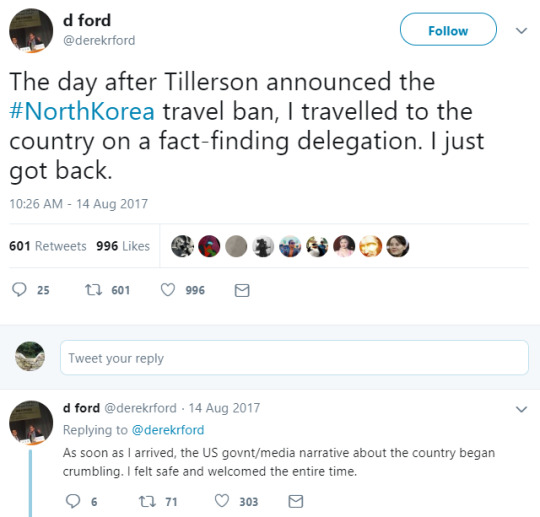
Upon reading the above tweets, one might be tempted to see Derek R. Ford as an ally of the DPRK. However, Ford is, at best, a poser who is using his feigned interest in Korean anti-imperialist struggles in order to promote himself outside the academic circles that professors usually run in. Considering the extent of Ford’s inaccurate portrayals of Korea in general, which will be documented in this article, it may be more likely that Ford is using his trip to DPRK as a shield of authenticity from behind which he can issue Korea-focused disinformation.
Contradicting Kim Il Sung: Ford’s Plagiarized Account of the Minsaengdan Incident
The most egregious example of disinformation from Derek R. Ford is his retelling of the Minsaengdan incident, which is also recounted by Kim Il Sung in volume 4 of With the Century. Kim says the incident can give "a lesson about the establishment of Juche of the Korean revolution and about the national spirit of independence." However, Ford’s account of the incident is a plagiarized apologia for the Japanese Empire in Korea, in which Ford directly contradicts Kim Il Sung.
Ford issued his account of the Misaengdan incident via a podcast called “Groundings.” The description for the episode featuring Ford promises the following content:
Organizer and educator Derek Ford gives a historical context for the current imperialist aggression surrounding the DPRK, explains the 'Juche' ideology, and recounts some firsthand propaganda-shattering experiences from his travels inside the country.
In the first place, it’s inexplicable why anyone would invite Ford — who speaks no Korean and has no specific training or education related to Korea — to give a history of Juche, when DPRK’s own English-language texts chronicle the history of Juche in great detail. Furthermore, although Kim Il Sung himself presents a highly detailed account of the Minsaengdan incident in With the Century, Ford ignores Kim's account and relies solely on a revisionist text: Han Hongkoo's chapter from Suh Jae-jung's Origins of North Korea’s Juche. Proof of Ford's reliance on Han becomes evident when one examines five specific examples from Ford’s presentation in the podcast, in which Ford's retelling of the Minsaengdan incident diverges from Kim Il Sung's account and Ford's word choices are too similar to Han's to be coincidental.
Example 1: Kim Il Sung blames Japan for creating the Minsaengdan, while Derek Ford blames Koreans for creating the Minsaengdan.
Kim Il Sung squarely blames Japan for creating the Minsaengdan, which he calls "a spy organization ... manufactured by the Japanese imperialists to paralyse the anti-Japanese spirit of the Korean people." Kim cites US-trained Governor-General Saito Makoto as personally responsible.
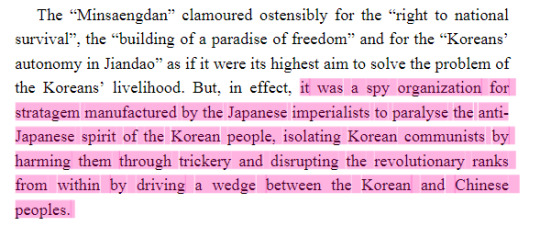
However, Ford contradicts Kim Il Sung, using Han's account to blame only Koreans.
Ford: "In Feb of 1932 ... there were these pro-Japanese Koreans which organized a group called the Minsaengdan" (at 16:30 in the podcast)
Han: "Minsaengdan was formed by pro-Japanese Korean migrants to Manchuria in Feb 1932"

Example 2: Kim Il Sung’s indictment of Japan versus Derek Ford’s acquittal of Japan
Kim Il Sung writes that Japan intended the Minsaengdan to "isolat[e] Korean communists by harming them through trickery and disrupting the revolutionary ranks from within by driving a wedge between the Korean and Chinese peoples."
In Kim Il Sung's "On Eliminating Dogmatism and Formalism and Establishing Juche in Ideological Work" speech from 1955, he says the Minsaengdan was Japan's "vile trick of alienating the Koreans from the Chinese and inciting strife among the Koreans."

Ford mentions Kim Il Sung's 1955 speech in the podcast, but he ignores Kim's assertion that Japan intended to divide Koreans from Chinese. Instead, he chooses Han's benign view of the Japanese empire. Channeling Han, Ford absolves Japan of any intent to exploit racial divisions between Koreans and Chinese.
Ford: "Japan didn't endorse [Minsaengdan and] didn't want ethnic strife or national divisions."
Han: "Japanese authorities ... hoped to lessen inter-ethnic hostilities."

(The Han/Ford portrayal of Japan as an honest broker between races not only contradicts Kim Il Sung, but it also makes the absurd assumption that the Japanese empire would reject the material gains it could accrue from exploiting the racialization of its subjects.)
Example 3: Kim Il Sung and Derek Ford’s differing assessments of the Minsaengdan’s effectiveness
Kim Il Sung writes: "The Japanese imperialists had hardly managed to implant anything [from the Minsaengdan] into our ranks. ... There is a record in an enemy document stating there were only seven or eight 'Minsaengdan' members."
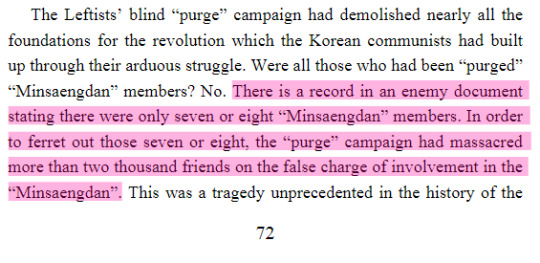
Again, Ford contradicts Kim: "It's generally agreed that there were sort of infiltrators [from Minsaengdan into the CCP]." In this regard, Ford actually goes farther than Han, who doesn't seem to say that there is a general consensus that the Minsaengdan successfully infiltrated the CCP.
Example 4: Derek Ford blames Koreans for initiating the Minsaengdan purges
Although Kim Il Sung unwaveringly blames Japan as the creator of the Minsaengdan, he doesn't actually single out any entity for initiating the violence of the anti-Minsaengdan purges. However, Ford blames Koreans for this.
Ford: "The Korean communists were enthusiastic initiators" of the Minsaengdan-related purges.
This contradicts Kim Il Sung and goes even farther than Han's assertion, "At first ... Koreans ... welcomed the Minsaengdan purge and actively participated."
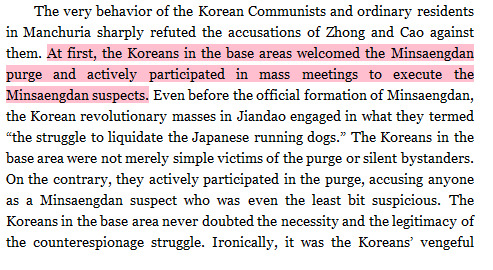
Example 5: Other similarities between Ford’s and Han’s language
Ford: The Minsaengdan purge "quickly degenerated into an anti-Korean purge."
Han: "the Minsaengdan purge, which started out as a counterespionage struggle, degenerated into an anti-Korean persecution."
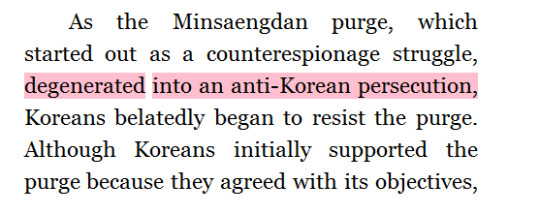
Ford’s inability to speak extemporaneously on DPRK
In addition to the similarities between Ford’s and Han’s accounts of the Minsaengdan incident and the similarities between Ford’s and Han's language, another factor makes it seem likely that Ford’s podcast presentation is based on plagiarized notes: When Ford is asked to speak extemporaneously about DPRK, he just can't do it.
In response to a question about the experiential learning he might have undergone from visiting DPRK and "seeing the Juche ideology firsthand," Ford seems completely maladroit at discussing DPRK without a prepared script. This is Ford’s answer to the question:
It's almost like a, this might seem strange, you know when you have an experience with a really, you know, unique experience with someone that you can't quite, like, articulate 100%, but you'll, like, look at each other and you know exactly what you're thinking? Okay, um, well, it's kind of like that, like, you'll ask a question, in the DPRK, and then you'll just be like, 'Oh, Juche.' Right? And it's like, that kind of, like, explains it all.
Ford’s False Claims about Koreans in the Chinese Communist Party
In case one needed more evidence that Derek R. Ford is a totally unreliable source on Korea (and other topics): He has falsely claimed, multiple times, that Koreans at one point composed the majority of the Chinese Communist Party, and he refuses to retract that claim.
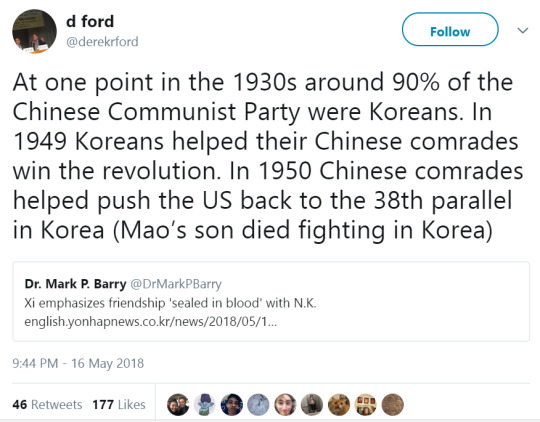
At no point in history did Koreans compose 90% of the entire CCP. That statistic is laughable on its face, but it can also be disproven with evidence.
Koreans did compose 90% or more of the CCP in some parts of Manchuria in the early 1930s. "Between spring 1932 and spring 1934 ... in E. Manchuria, S. Manchuria, N. Manchuria, and Jidong ... Koreans constituted the majority, both in the Party and in the CCP armed forces."
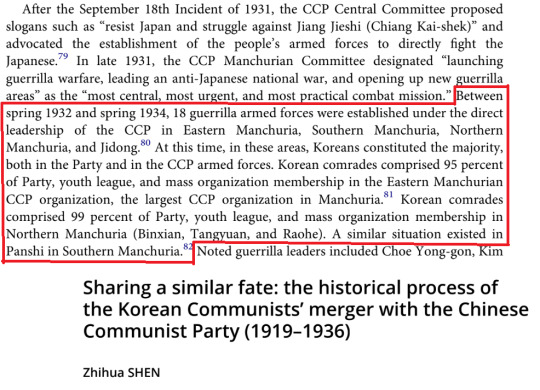
However, considering that CCP membership was 40,000+ in 1928, and Koreans didn't join the CCP en masse until 1930, if 90% of the CCP were Korean, that would mean that there were at least 360,000 Koreans versus 40,000 Chinese in the CCP.
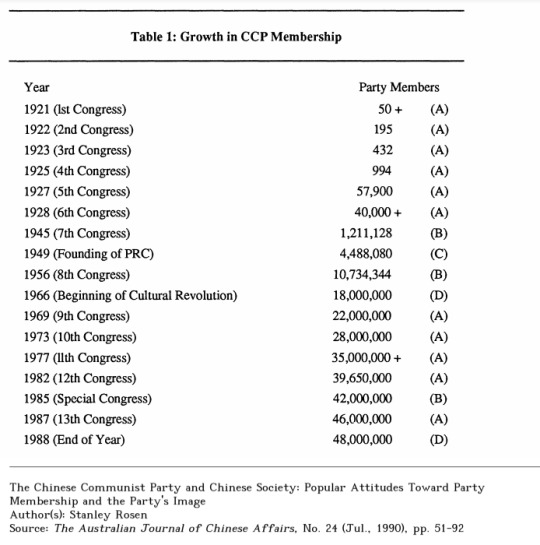
Presumably, the number of Koreans in the CCP would peak before the Minsaengdan purges of the mid-1930s. Given that most Koreans in China lived in Manchuria, Ford's statistic would mean that approximately 50% of Koreans in China were CCP members. Demographically, that's highly unlikely.
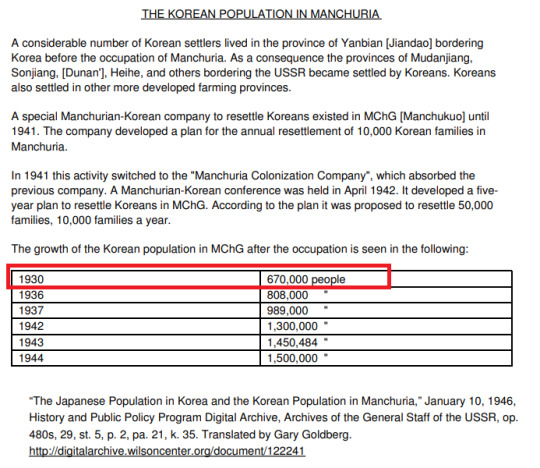
This error has been pointed out to Ford, but he refuses to acknowledge it. That's probably because he put the error in one of his books (which costs $141.98), and he wants to save face for his editor/publisher/etc.
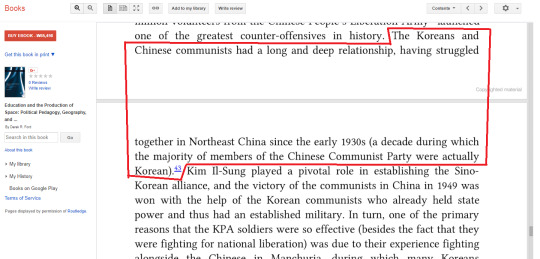
Using Koreans as Props
Ford has a tendency to use Korean people and Korean aesthetics as brand-building accessories. For example, the below-pictured tweet contains no information about Ford’s "comrade" or her situation — not even her name!

Because Ford can’t read the below-pictured publication, he can only post a picture of its graphic for his followers to admire.
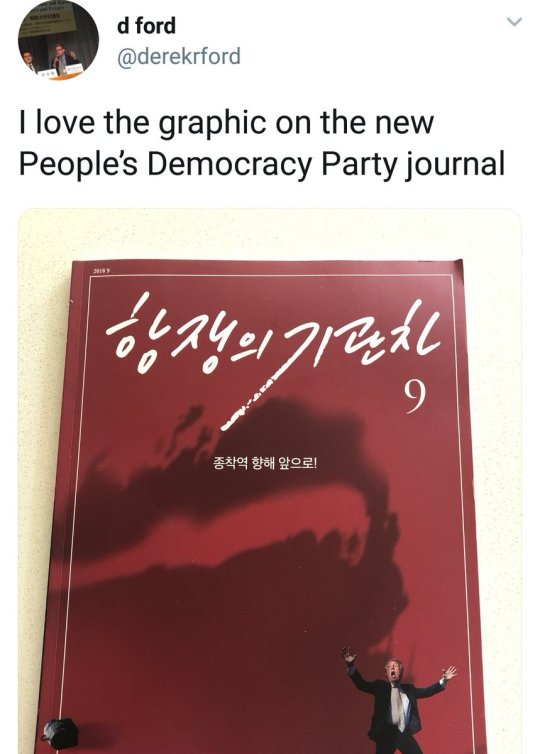
The tweets pictured below are really something. Ford claims that he has gone to the airport with RoK organizers who try to check in to their flights and discover that they can’t leave the country. Certainly, RoK does prohibit some of its citizens from leaving the country; for example, the kidnapped restaurant workers from DPRK have been unable to obtain passports. However, it’s completely implausible that US citizen Derek Ford would be in RoK, leaving that country while accompanied by RoK organizers who are left behind as Ford departs. The implausibility of this scenario is exemplified by Ford’s inability to share any details of the situation at all, other than, “I was there.”
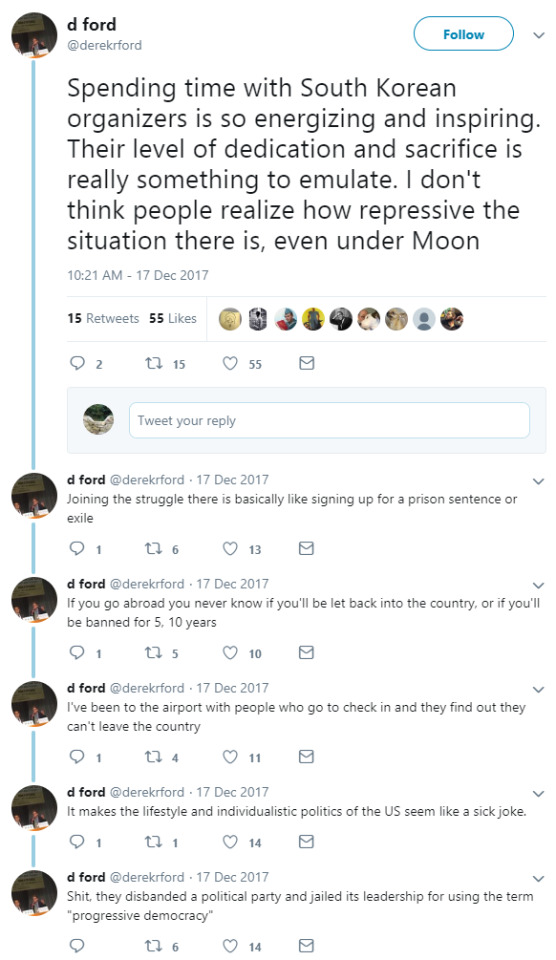
Contrary to Ford’s assertion, the man in the below-pictured tweet (Seo Ok-ryeol) has been out of RoK prison for years. It seems that Ford wanted to use Seo’s plight as an excuse to write the word “Juche” on his timeline.
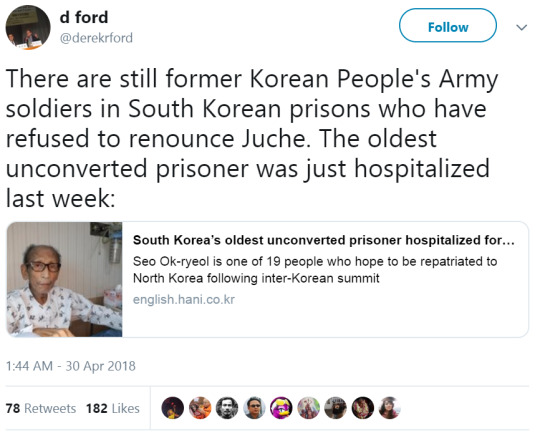
Conclusion: De-Emphasizing the Importance of DPRK Travel Narratives
It’s actually not difficult for USians to travel to DPRK. I haven’t been there myself, but it sounds much more convenient than many other travel destinations. In spite of the currently existing travel ban for US citizens, DPRK is still accepting visitors from the USA, although those visitors may need to exercise caution about publicizing their travels.
On the basis of how easily USians have been able to travel to DPRK, it is imperative that DPRK travel not be confused with DPRK solidarity. Note how Derek Ford refers to his DPRK travel entourage: “a fact-finding delegation.”
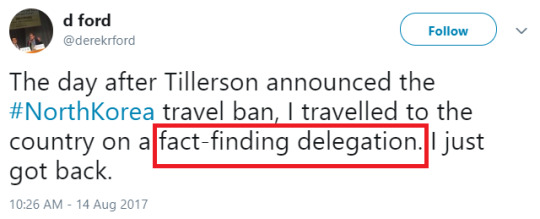
The implication in calling it a “fact-finding delegation” is that Ford may have actually believed imperialist myths about DPRK before he traveled there to “find” the “facts.” Now that he has obtained the facts, he presents himself as an arbiter of those facts based upon his own lived experience. Yet, Ford has repeatedly proven himself unable to present even the most basic facts about the DPRK and Korea at large. Ford’s voice should thus be excluded from any conversation regarding Korea.
Related
Western Academia’s War Against Korea, Part 1: Introduction, Stanford University, Gi-wook Shin
Western Academia’s War Against Korea, Part 2: Stanford University Attempts to Erase the Revolution from DPRK
Western Academia’s War Against Korea, Part 3: Stanford University Celebrates Washington Post Reporter Anna Fifield
#dprk#rok#korea#north korea#south korea#kim il sung#derek r ford#derek ford#with the century#groundings#seo ok-ryeol#disinformation
24 notes
·
View notes
Text
PSL Liberation School of Revisionism and Imperialism
In a podcast published on February 22nd [1] Derek Ford of PSL/ANSWER (co-editor of LiberationSchool.org) presented a history of the DPRK and Juche which is sourced from a revisionist text that contradicts Kim Il-sung’s own account. Ford also failed to give credit to the Korean writer whose work he used.
One of the subjects is the Minsaengdan incident, which Kim Il-sung retells in “With the Century.” According to Kim Il-sung, the incident served as a “lesson about the establishment of Juche of the Korean revolution and about the national spirit of independence.” [x]
While President Kim Il-sung left behind a well detailed account of the Minsaengdan incident, Ford appears to have ignored it and relies exclusively on a revisionist text, Han Hongkoo’s chapter from Suh Jae-jung’s “Origins of North Korea’s Juche.”
Ford’s reliance on Han Hongkoo is clear from the specific ways in which Ford’s account diverges from Kim Il-sung’s account, in concert with Ford’s word choices, which are quite similar to Han’s to be coincidental.
Kim Il-sung blamed Japan for the Minsaengdan incident, calling it “a spy organisation... manufactured by the Japanese imperialists to paralyse the anti-Japanese spirit of the Korean people.” Kim cited U.$. trained Governor-General Saito Makoto as personally responsible. [2]
Ford contradicts Kim Il-sung, relying on Han’s account to blame solely Koreans. On minute 16:30 of the podcast, Ford says: “In February of 1932... there were these pro-Japanese Koreans which organised a group called the Minsaengdan”. In Han Hongkoo’s work, “Minsaengdan was formed by pro-Japanese Korean migrants to Manchuria in Feb 1932.″ [3]
Kim Il-sung wrote that Japan intended the Minsaendan to, “isolat[e] Korean communists by harming them through trickery and disrupting the revolutionary ranks from within by driving a wedge between the Korean and Chinese peoples.”
In the “On Eliminating Dogmatism and Formalism and Establishing Juche in Ideological Work” speech from 1955, Kim said the Minsaengdan was Japan’s “vile trick of alienating the Koreans from the Chinese and inciting strife among the Koreans.” [4]
Ford refers to Kim Il-sung’s 1955 speech in the podcast, but he again ignores Kim’s assessment that Japan intended to divided Koreans from Chinese. Instead, he chose Han’s benign view of the Japanese empire.
Through Han’s work, Ford absolves Japan of any intent to exploit racial divisions between Koreans and Chinese. Ford says: “Japan didn't endorse [Minsaengdan and] didn't want ethnic strife or national divisions." On Han’s work you can read: "Japanese authorities ... hoped to lessen inter-ethnic hostilities." [5]
On a side note: Han and Ford’s portrayal of Japan as an intermediary not only contradicts Kim Il-sung, but it also presents a very absurd assumption that the Japanese empire would reject the material gains it could accrue from exploiting the racialisation of its subjects.
Returning to Kim Il-sung, “The Japanese imperialists had hardly managed to implant anything [from the Minsaengdan] into our ranks. ...There is a record in an enemy document stating there were only seven or eight 'Minsaengdan' members.” [6]
Again Ford contradicts Kim Il-sung, “It's generally agreed that there were sort of infiltrators [from Minsaengdan into the CCP].” He goes farther than Han, who doesn’t seem to say that there is a general consensus that the Minsaengdan successfully infiltrated the CCP.
While Kim Il-sung unwaveringly blamed Japan as the creator of the Minsaengdan, he does not single out any entity for initiating the violence of anti-Minsaengdan purges. However, Ford blames Koreans for this.
Ford says: “The Korean communists were enthusiastic initiators” of the Minsaengdan related purges. This contradicts Kim Il-sung and goes even farther than Han’s assertion, “At first... Koreans... welcomed the Minsaengdan purge and actively participated.” [6]
There are other noticeable similarities between Ford and Han’s language. For instance, Ford says: “The Minsaengdan purge quickly degenerated into an anti-Korean purge." While Han wrote: “the Minsaengdan purge, which started out as a counter-espionage struggle, degenerated into an anti-Korean persecution.” [7]
Ford is not the first to brand himself with DPRK imagery and aesthetics while retelling Korean history with revisionist texts whose authors he never mentions. That was one of the primary tactics of the DangusProgeny account. [x]
Although DangunsProgeny was a Twitter personality likely written in some part by Tim Shorrock, Ford also seems to have participated. For example, DangunsProgeny boasted of making conference presentations at times and places that Ford also gave presentations. [x]
DangunsProgeny's very first tweets were to an account managed by someone Ford knows personally. DangunsProgeny claimed to be the same age as Ford. Ford and DangunsProgeny favoured the outdated romanisation "Cheju," which is typically rendered as Jeju now. DangunsProgeny attended ANSWER protests. [x] [x] [x] [x]
Ford and Tim Shorrock promote each other's work. Particularly odious is Ford's boosting of Shorrock's false equivalence between John Bolton and DPRK's Kim Yong-chol, which implicitly endorses the U.$.'s fraudulent claims that Kim Yong-chol was involved with the ROK’s Cheonan sinking. [x] [x]
One of the purposes of the DangunsProgeny account was to fabricate an "authentic" character who claimed to be Marxist-Leninist while promoting an imperialist line — which is exactly what we see from Ford now. [8] [9] [10] [11]
DangunsProgeny was also an experiment in gauging how quickly and how much "ML" credibility an account could garner on social media despite degrading Marxism-Leninism from a science to a personality descriptor.
8 notes
·
View notes
Link
Authored by Pepe Escobar via The Asia Times,
With a Russia-China-Iran triple bitch slap on the hegemon, we now have a brand new geopolitical chessboard...
It took 18 years after Shock and Awe unleashed on Iraq for the Hegemon to be mercilessly shocked and awed by a virtually simultaneous, diplomatic Russia-China one-two.
Russian Foreign Minister Sergey Lavrov (L) meets Chinese Foreign Minister Wang Yi (R) in Beijing, China on March 23, 2021. Photo: Russian Foreign Ministry/Handout/Anadolu Agency
How this is a real game-changing moment cannot be emphasized enough; 21st century geopolitics will never be the same again.
Yet it was the Hegemon who first crossed the diplomatic Rubicon. The handlers behind hologram Joe “I’ll do whatever you want me to do, Nance” Biden had whispered in his earpiece to brand Russian President Vladimir Putin as a soulless “killer” in the middle of a softball interview.
Not even at the height of the Cold War the superpowers resorted to ad hominem attacks. The result of such an astonishing blunder was to regiment virtually the whole Russian population behind Putin – because that was perceived as an attack against the Russian state.
Then came Putin’s cool, calm, collected – and quite diplomatic – response, which needs to be carefully pondered. These sharp as a dagger words are arguably the most devastatingly powerful five minutes in the history of post-truth international relations.
In For Leviathan, it’s so cold in Alaska, we forecasted what could take place in the US-China 2+2 summit at a shabby hotel in Anchorage, with cheap bowls of instant noodles thrown in as extra bonus.
China’s millennial diplomatic protocol establishes that discussions start around common ground – which are then extolled as being more important than disagreements between negotiating parties. That’s at the heart of the concept of “no loss of face”. Only afterwards the parties discuss their differences.
Yet it was totally predictable that a bunch of amateurish, tactless and clueless Americans would smash those basic diplomatic rules to show “strength” to their home crowd, distilling the proverbial litany on Taiwan, Hong Kong, South China Sea, “genocide” of Uighurs.
Oh dear. There was not a single State Dept. hack with minimal knowledge of East Asia to warn the amateurs you don’t mess with the formidable head of the Foreign Affairs Commission at the CCP’s Central Committee, Yang Jiechi, with impunity.
Visibly startled, but controlling his exasperation, Yang Jiechi struck back. And the rhetorical shots were heard around the whole Global South.
They had to include a basic lesson in manners:
“If you want to deal with us properly, let’s have some mutual respect and do things the right way”.
But what stood out was a stinging, concise diagnostic blending history and politics:
The United States is not qualified to talk to China in a condescending manner. The Chinese people will not accept that. It must be based on mutual respect to deal with China, and history will prove that those who seek to strangle China will suffer in the end.
And all that translated in real time by young, attractive and ultra-skilled Zhang Jing – who inevitably became an overnight superstar in China, reaping an astonishing 400 million plus hits on Weibo.
The incompetence of the “diplomatic” arm of the Biden-Harris administration beggars belief. Using a basic Sun Tzu maneuver, Yang Jiechi turned the tables and voiced the predominant sentiment of the overwhelming majority of the planet. Stuff your unilateral “rules-based order”. We, the nations of the world, privilege the UN charter and the primacy of international law.
So this is what the Russia-China one-two achieved almost instantaneously: from now on, the Hegemon should be treated, all across the Global South with, at best, disdain.
An inevitable historical process
Pre-Alaska, the Americans went on a charming offensive in Japan and South Korea for “consultations”. That’s irrelevant. What matters is post-Alaska, and the crucial Sergey Lavrov-Wang Yi meeting of Foreign Ministers in Guilin.
Lavrov, always unflappable, clarified in an interview with Chinese media how the Russia-China strategic partnership sees the current US diplomatic train wreck:
As a matter of fact, they have largely lost the skill of classical diplomacy. Diplomacy is about relations between people, the ability to listen to each other, to hear one another and to strike a balance between competing interests. These are exactly the values that Russia and China are promoting in diplomacy.
The inevitable consequence is that Russia-China must “consolidate our independence: “The United States has declared limiting the advance of technology in Russia and China as its goal. So, we must reduce our exposure to sanctions by strengthening our technological independence and switching to settlements in national and international currencies other than the dollar. We need to move away from using Western-controlled international payment systems.”
Russia-China have clearly identified, as Lavrov pointed out, how the “Western partners” are “promoting their ideology-driven agenda aimed at preserving their dominance by holding back progress in other countries. Their policies run counter to the objective international developments and, as they used to say at some point, are on the wrong side of history. The historical process will come into its own, no matter what happens.”
As a stark presentation of an inevitable “historical process”, it doesn’t get more crystal clear than that. And predictably, it didn’t take time for the “Western partners” to fall back into – what else – their same old sanction bag of tricks.
Here we go again: a US, UK, EU, Canada “alliance” sanctioning selected Chinese officials because, in Blinken’s words, “the PRC [People’s Republic of China] continues to commit genocide and crimes against humanity in Xinjiang.”
The EU, UK, and Canada didn’t have the guts to sanction a key player: Xinjiang party chief Chen Quanguo, who’s a Politburo member. The Chinese response would have been – economically – devastating.
Still, Beijing counterpunched with its own sanctions – targeting, crucially, the German far-right evangelical nut posing as “scholar” who produced the bulk of the completely debunked “proof” of a million Uighurs held in concentration camps.
Once again, the “Western partners” are impermeable to logic. Adding to the already appalling state of EU-Russia relations, Brussels chooses to also antagonize China based on a single fake dossier, playing right into the Hegemon’s not exactly secret Divide and Rule agenda.
Mission (nearly) accomplished: Brussels diplomats tell me the EU Parliament is all but set to refuse to ratify the China-EU trade deal painstakingly negotiated by Merkel and Macron. The consequences will be immense.
So Blinken will have reasons to be cheerful when he meets assorted eurocrats and NATO bureaucrats this week, ahead of the NATO summit.
One has to applaud the gall of the “Western partners”. It’s 18 years since Shock and Awe – the start of the bombing, invasion and destruction of Iraq. It’s 10 years since the start of the total destruction of Libya by NATO and its GCC minions, with Obama-Biden “leading from behind”. It’s 10 years since the start of the savage destruction of Syria by proxy – complete with jihadis disguised as “moderate rebels”.
Yet now the “Western partners” are so mortified by the plight of Muslims in Western China.
At least there are some cracks within the EU illusionist circus. Last week, the French Armed Forces Joint Reflection Circle (CRI) – in fact an independent think tank of former high officers – wrote a startling open letter to cardboard NATO secretary-general Stoltenberg de facto accusing him of behaving as an American stooge with the implementation of NATO 2030 plan. The French officers drew the correct conclusion: the US/NATO combo is the main cause of appalling relations with Russia.
These Ides of March
Meanwhile, sanctions hysteria advance like a runaway train. Biden-Harris has already threatened to impose extra sanctions on Chinese oil imports from Iran. And there’s more in the pipeline – on manufacturing, technology, 5G, supply chains, semiconductors.
And yet nobody is trembling in their boots. Right on cue with Russia-China, Iran has stepped up the game, with Ayatollah Khamenei issuing the guidelines for Tehran’s return to the JCPOA.
1. The US regime is in no position to make new demands or changes regarding the nuclear deal.
2. The US is weaker today than when the JCPOA was signed.
3. Iran is in a stronger position now. If anyone can impose new demands it’s Iran and not the US.
And with that we have a Russia-China-Iran triple bitch slap on the Hegemon.
In our latest conversation/interview, to be released soon in a video + transcript package, Michael Hudson – arguably the world’s top economist – hit the heart of the matter:
The fight against China, the fear of China is that you can’t do to China, what you did to Russia. America would love for there to be a Yeltsin figure in China to say, let’s just give all of the railroads that you’ve built, the high-speed rail, let’s give the wealth, let’s give all the factories to individuals and let the individuals run everything and, then we’ll lend them the money, or we’ll buy them out and then we can control them financially. And China’s not letting that happen. And Russia stopped that from happening. And the fury in the West is that somehow, the American financial system is unable to take over foreign resources, foreign agriculture. It is left only with military means of grabbing them as we are seeing in the near East. And you’re seeing in the Ukraine right now.
To be continued. As it stands, we should all make sure that the Ides of March – the 2021 version – have already configured a brand new geopolitical chessboard. The Russia-China Double Helix on high-speed rail has left the station – and there’s no turning back.
0 notes